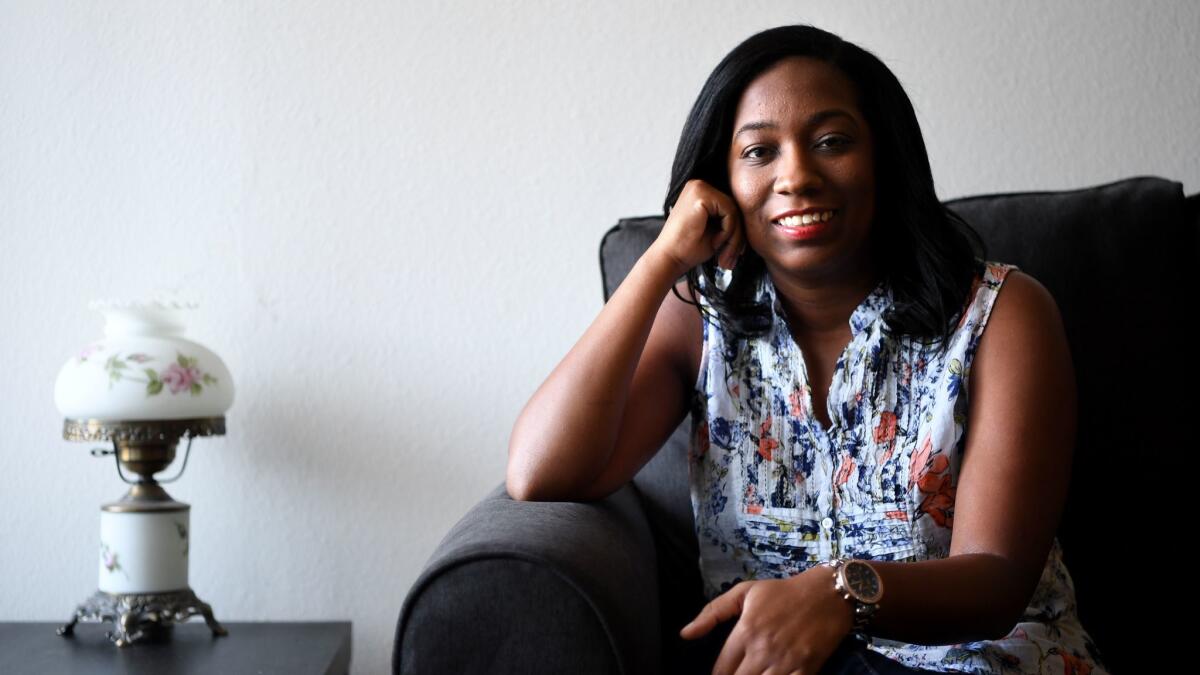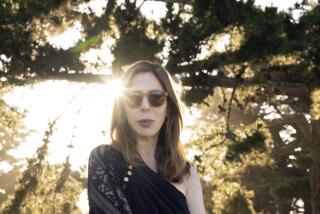Newsletter: Books: Dystopia, the election and when debate was an art form
I’ve been trying to come up with a single word or phrase to describe this year’s presidential election season. “Historic” doesn’t quite capture it. We used “divisive” in our pages this week. “Anxiety-producing” has been close to my heart, but I think “almost over” is my current favorite. Me, I’m Carolyn Kellogg, books editor, and here’s what’s big in books this week.
THE BIG STORY
Critic-at-Large John Scalzi has something to say about the election — and about dystopias. Dystopias are fun in fiction, but would you really want to live in one? And are we close? “This is an election in which science fiction writers can look at the events on the ground and say, ‘Hold up, this looks a lot like the opening chapters of a dystopian novel,’” he writes. Plus, if you like reading fiction about the collapse of society and the end of the world, he’s got a rundown of some of the greats.
ERUDITE CONSERVATISM
For 33 years, William F. Buckley sat down with his ideological opponents on “Firing Line” and coolly took them apart, engaging with ideas, using facts. If that kind of political discourse seems a distant memory, you can revisit it with the many transcripts that appear in a new biography, “Open to Debate: How William F. Buckley Put Liberal America on the Firing Line,” reviewed in our pages this week by former Republican congressman Mickey Edwards, now of the Aspen Institute.
SURPRISING INTIMACY
When “Transparent” creator Jill Soloway and poet Eileen Myles sat down at the Hammer Museum last week, attendees knew they’d be talking about “queer” art. They might have expected to hear the high-profile couple talk about their relationship. What they didn’t expect was to hear them talk about their very recent split. Agatha French was there.
THE NOVELIST TO READ NEXT
Spanish superstar Javier Marías isn’t exactly a household name in the U.S. yet, but perhaps his new novel, “Thus Bad Begins,” will change that. The story of a filmmaker, the devoted wife he scorns, and the assistant who is drawn into their lives is wrapped in secrets, writes Scott Cheshire in our review.
AND THEY’RE OFF
America’s literary prize season kicked off Thursday with the Kirkus Prizes, presented by Kirkus Reviews, the book review magazine. The 3-year-old prizes award $50,000 each to a book of fiction, nonfiction and young adult literature. That makes it one of the book world’s biggest purses. Taking the prize for fiction was “Sport of Kings,” a multi-generational novel of horse racing, race and class by C.E. Morgan that came from behind for the win. (And with that, my corny horse racing allusions are over.) The winner of the nonfiction prize is Susan Faludi’s memoir “In the Darkroom,” and Jason Reynolds won the YA prize for “As Brave as You.”
Last week, the British-based Man Booker Prize for fiction awarded its prize to an American for the first time ever — “The Sellout,” Paul Beatty’s marvelous satire (it was published in the U.S. in 2015). Next week, the National Book Awards, presented by the National Book Foundation, are to be announced at a gala ceremony in New York; follow me on Twitter @paperhaus for tweets from the event as it happens.

BESTSELLERS
Entering our bestseller list this week at No. 7 is Brit Bennett’s novel “The Mothers,” a coming-of-age story set in an African American community in Southern California. Bennett was named one of the National Book Foundation’s “5 under 35” honorees earlier this year; here’s our article about Bennett and the other talented new writers.
WHAT DO YOU THINK?
Thanks for all the nice feedback you sent about the newsletter last week. If you have any more thoughts, please email me, Carolyn.Kellogg@latimes.com.
More to Read
Sign up for our Book Club newsletter
Get the latest news, events and more from the Los Angeles Times Book Club, and help us get L.A. reading and talking.
You may occasionally receive promotional content from the Los Angeles Times.











